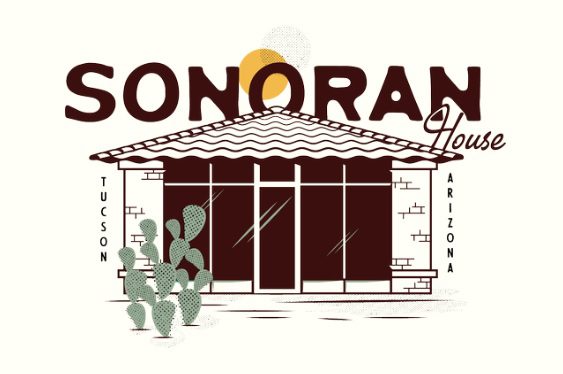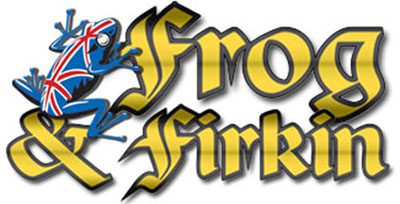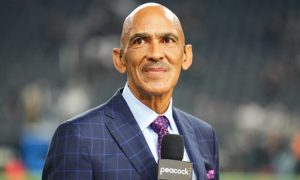The truth is that without the late Al Fleming, Arizona’s Ring of Honor is broken or an incomplete circle.
The addition of one-and-done players Jerryd Bayless and Deandre Ayton this year increased the total in the Ring of Honor at Arizona to 26 players.
Fleming, the best rebounder in Arizona history, rated as one of the top 10 to play for the Wildcats by The Sporting News’ Michael DeCourcey, is not one of the 26.
A celebration took place Thursday night at McKale Center with Ayton taking center stage — on the court, on Twitter, on Facebook, on Instagram and on the satellite feed by FS1 — with his inclusion in the Ring of Honor.
The acknowledgement Fleming got nationally for his game performances came without video (Arizona was not on national TV back then like they are now). It was only via wire reports, a couple of paragraphs recapping a game. There was no SportsCenter. Not many outside of Tucson knew what he looked like.
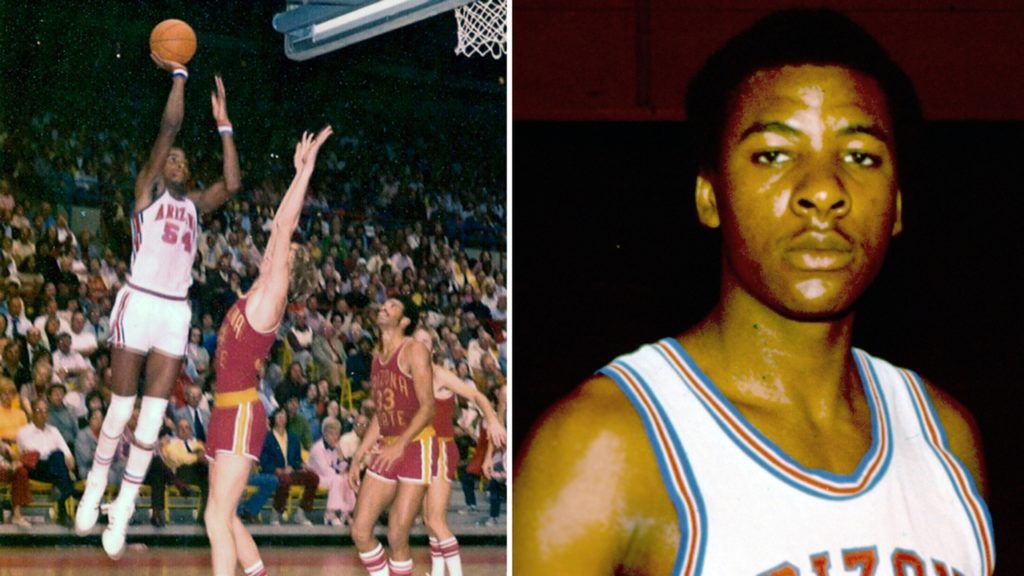
Al Fleming is one of only two Arizona players with at least 1,000 points and 1,000 rebounds in a career (Arizona Athletics photos)
Arizona’s requirements for its Ring of Honor makes it nearly impossible for somebody who played before cable and satellite TV, social media and Power 5 conference inclusion to be a part of the prestige. Players such as Ernie McCray, Joe Skaisgir, Albert Johnson and Warren Rustand don’t stand a chance when they realistically should. They were legendary at an obscure time for too many people now.
Bob Elliott, Fleming’s teammate with Fred Snowden‘s Kiddie Korps and Cardiac Cats era, is fighting a similar battle trying to get his jersey No. 55 retired by Arizona. For that distinction, a player must be a national player of the year. With Elliott playing in the Western Athletic Conference those days without Twitter and ESPN, he’s behind the 8-ball, despite being one of only 106 players in college basketball history with at least 2,000 points and 1,000 rebounds in his career.
The Ring of Honor should be changed to Arizona’s Pac-12 Ring of Honor. One of the criteria actually involves only the Pac-12:
— Pac-10/12 Player of the Year or Pac-10/12 Freshman of the Year; and Pac-10/12 Offensive or Defensive Player of the Year.
Fleming played from 1972-76 in the WAC, a much more regionalized league and not as prominent as the Pac-10 and Pac-12.
The WAC did not start to honor a player of the year until after the 1980-81 season. No question about it, if that award was in place early in Snowden’s tenure, players such as Fleming, Elliott, Eric Money and Coniel Norman would have strongly challenged for the distinction.
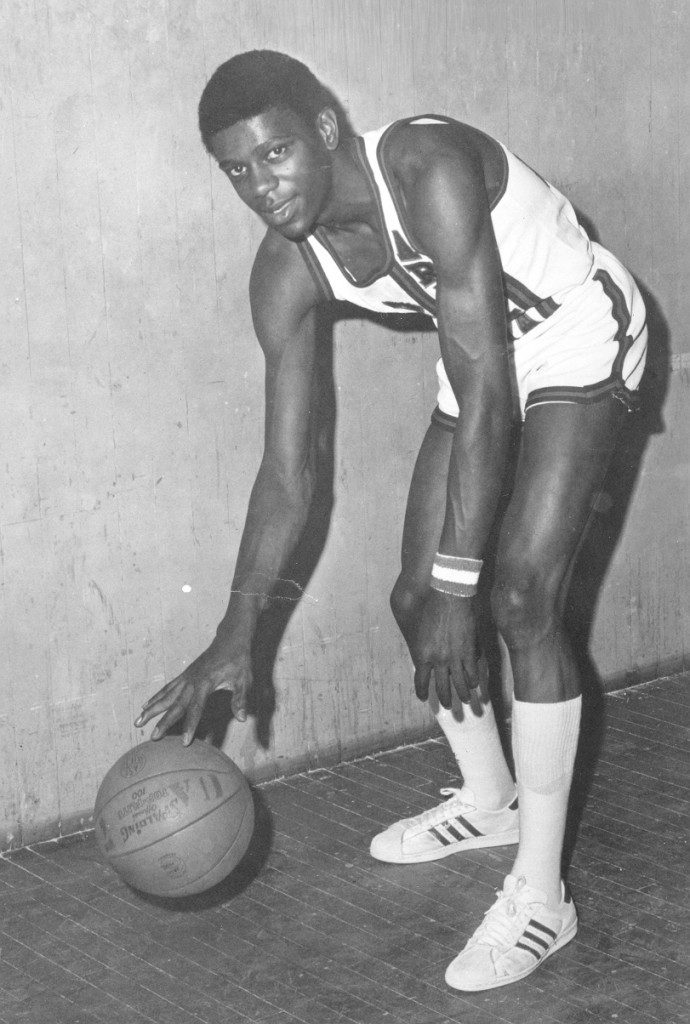
Coniel Norman was the most prolific freshman scorer per game in Arizona history (University of Arizona photo)
It was not until the 1989-90 season that the WAC honored a Freshman of the Year. Norman was named to the WAC All-Conference Team as a freshman in 1972-73, when he averaged 24.0 points a game without the 3-point line and a shot clock.
Arizona’s other Ring of Honor requirements:
–First Team All-America recognition by one or more of the major national organizations or media.
–Major national “player of distinction”, e.g. Heisman, Wooden, etc.; and/or national championship Most Valuable or Outstanding Player distinction.
–Arizona career leader in three or more major positive “career” categories at the conclusion of their collegiate career, must hold the career record for a minimum of five years.
–10 or more years in the NBA or has been selected as an All-Star
–Olympic medalist
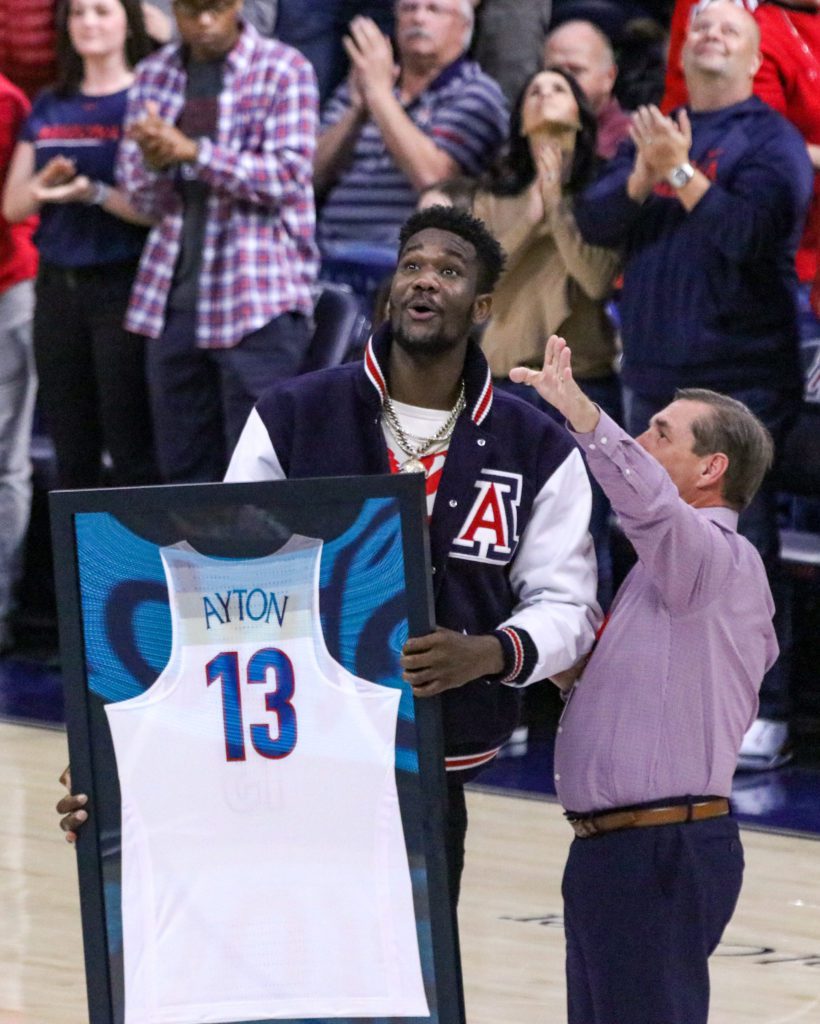
Deandre Ayton looks to the rafters to see his name on UA’s Ring of Honor. (Photo courtesy GoAZCats.com)
Fleming does not meet any of these requirements and some of that has to do with playing at the same time as Elliott, one of Arizona’s greats. Elliott is in the Ring of Honor. He was selected a first team All-American by the Helms Foundation when he was a senior in 1976-77.
Elliott’s notoriety that season was greatly aided by Arizona’s Elite Eight appearance the season before with Fleming as a senior. Fleming averaged 16 points a game while shooting 58 percent from the field. He also averaged 10.0 rebounds, which means he averaged in double-figure points and rebounds the last three seasons of his career.
Fleming did not leave early, playing all four seasons with the Wildcats. He was selected the 30th player overall in the 1976 NBA draft by the Phoenix Suns. That was in the second round then. It would be in the first round now with the NBA having 30 teams.
Unfortunately, his NBA career never flourished as the Suns waived him before his rookie season started because they wanted him to play center despite his size (6-7 and 215 pounds). Indiana and Seattle also waived him before he played overseas at Sweden, Italy, Israel, Portugal and Uruguay.
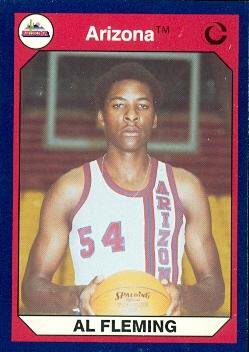
Al Fleming was selected as the 30th player overall in the 1976 NBA draft.
Being a part of the WAC and out of the national spotlight, Fleming was an unknown commodity coming out of Arizona. Becoming a national player of the year candidate was a far-fetched goal for him or Elliott because of the WAC not being a power conference.
Lastly, when Fleming left Arizona in 1976 he led the Wildcats in career scoring (1,765 points), rebounding (1,190 boards) and field goal percentage (58.3). He did not hold the scoring record for more than five years, however, with his teammate Elliott passing him the year after his career ended, finishing with 2,131 points.
Fleming held the career shooting percentage record for nine years before junior college transfer Pete Williams shot 60.5 percent in the 1983-84 and 1984-85 seasons.
Fleming still holds the rebounding record, going on 43 years now.
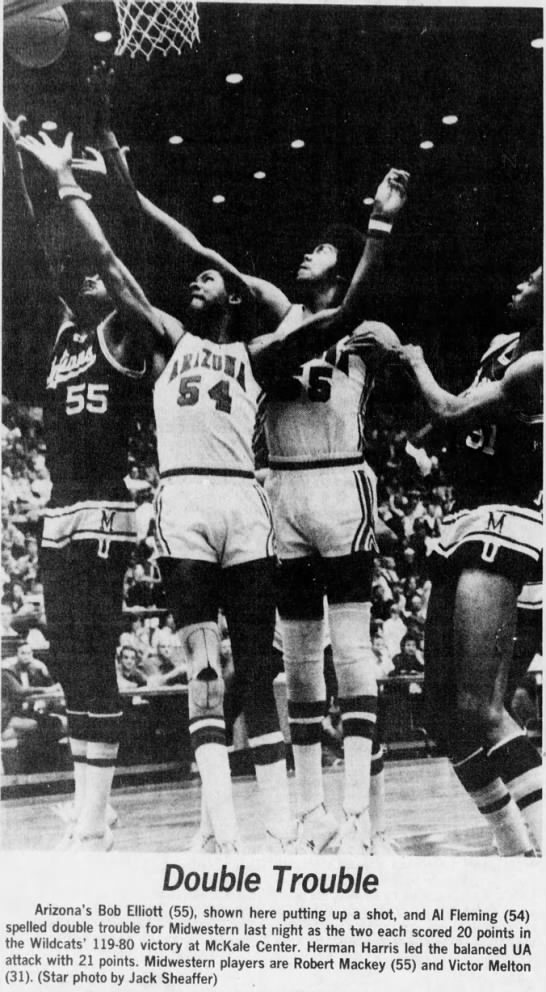
Clipping from a 1975 Arizona Daily Star Article of Al Fleming and Bob Elliott.
The obvious suggestion for inclusion in the Ring of Honor is to drop the five-year limit of leading the career statistical categories.
Or make it so players with at least 1,000 points and 1,000 rebounds in a career qualify. Only Elliott (2,131 points and 1,083 rebounds) and Fleming (1,765 ppints and 1,190 rebounds) belong to that club in Arizona history.
Fleming passed away in 2003 in his hometown of Michigan City, Ind., at only 49 years old after battling kidney cancer for five years.
In his obituary published by the Arizona Daily Star, Fleming was quoted about his decision to not be an early entrant into the NBA draft after his junior season of 1974-75. He stuck it out with Elliott, who also thought about leaving, and the Wildcats came one game away from the Final Four in 1975-76.
“That put the program on the map,” Fleming said. “Had we left that would have really hurt the program. Of all the things I did at the University of Arizona, that is one thing I am most proud of, because it was a great sacrifice. … We could have made a lot of money and it would have enhanced my own career.”
It’s time the program show Fleming similar respect and honor.
FOLLOW @JAVIERJMORALES ON TWITTER!
ALLSPORTSTUCSON.com publisher, writer and editor Javier Morales is a former Arizona Press Club award winner. He is a former Arizona Daily Star beat reporter for the Arizona basketball team, including when the Wildcats won the 1996-97 NCAA title. He has also written articles for CollegeAD.com, Bleacher Report, Lindy’s Sports, TucsonCitizen.com, The Arizona Republic, Sporting News and Baseball America, among many other publications. He has also authored the book “The Highest Form of Living”, which is available at Amazon.


